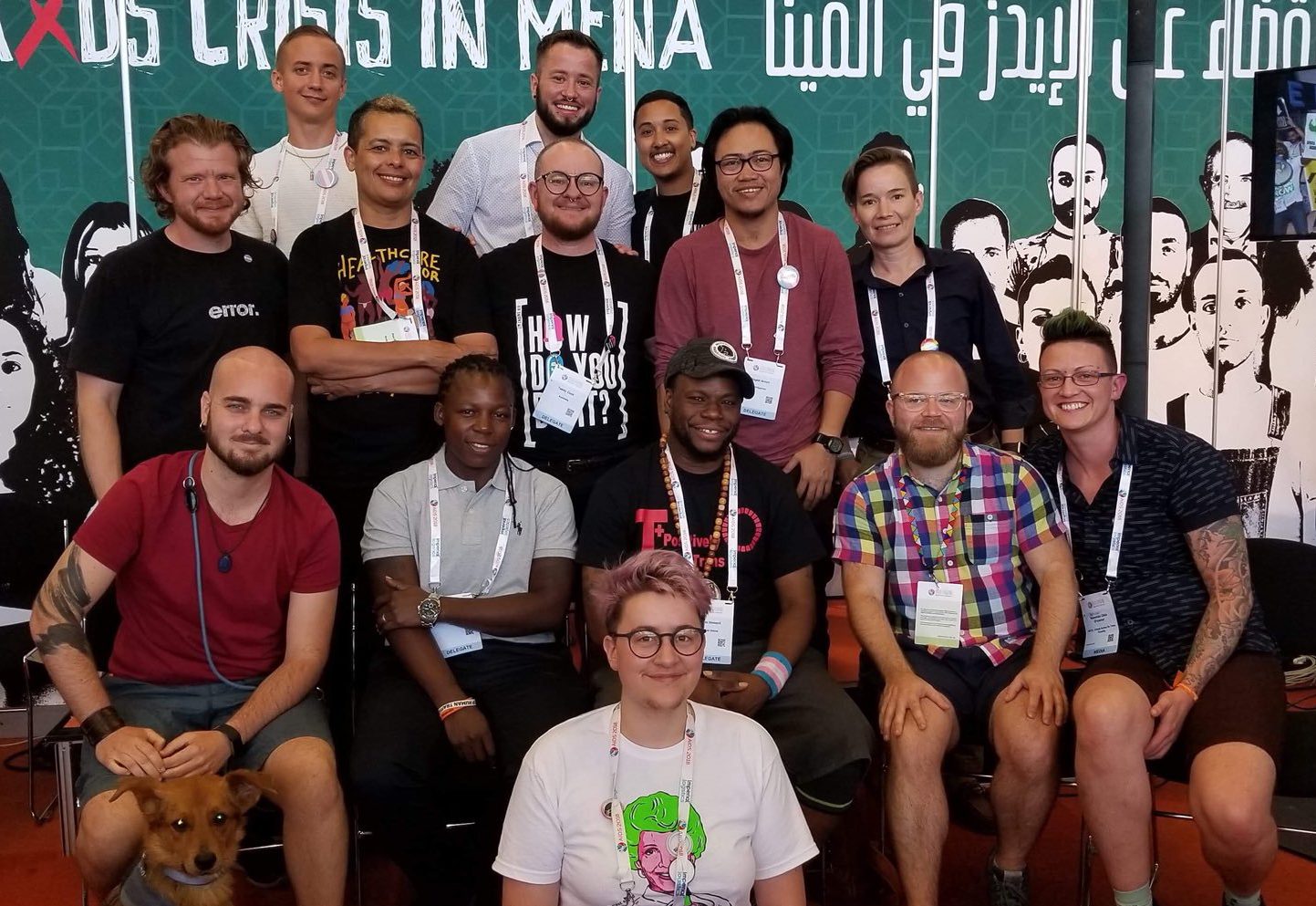This year, 1 December is the 30th anniversary of World AIDS Day, with the theme “Know your status”. Significant progress has been made in the AIDS response since 1988, but there is still so much work still to be done. In 2017, there were 36.9 million people living with HIV, with 25% of those being unaware of their HIV status. The UNAIDS/WHO 90–90–90 targets indirectly exclude trans and gender diverse people, as the 10-10-10 that are still not being reached.
As a key population, trans and gender diverse people are still 13 times more likely to be living with HIV than the general population.1 There are several reasons for this extreme disparity. Trans and gender diverse people often delay seeking testing and treatment due to transphobia and insensitivity among healthcare professionals. Structural and social inequalities faced by trans and gender diverse communities exacerbates this lack of access to HIV care and treatment. This is evidenced by widespread stigma and discrimination, lack of access to identity documents that match gender expression, high prevalence of unemployment and under- employment, street-based sex work with low pay and no legal protections, homelessness and lack of access to health services, included gender-affirming care. Access to hormone therapy is often prioritized over access to and use of HIV care and treatment, with trans and gender diverse people being forced to choose between two life-affirming treatments.2
End exclusion of trans masculine people from HIV response

Until now, trans men and other trans masculine people have received little -if any- attention in the international HIV response. This negative attitude is the result of the combination of prejudice, ignorance and disregard for their bodies, identities and sexualities in mainstream HIV programming, funding and reporting.
During the last decade, scientific research, service providers and community organizing have consistently called to an end to the structural exclusion of trans masculine people and issues from the HIV response at the national, regional and international level. Emerging data suggests that this subpopulation faces heightened vulnerability to HIV.2
As announced during the International AIDS 2018 Conference* in Amsterdam, GATE opens today the call to join our International Working Group on Trans Masculine People and HIV.
The purpose of this Working Group is to address key issues affecting trans men and other trans masculine people in the international HIV response, including: disparities in participation, representation and decision making; research and funding gaps; access to PrEP, PEP and ARVs; sexual and reproductive health and rights; sexual violence against trans masculine people; interactions between gender affirming treatment and HIV treatment; standards of care for trans masculine people in the HIV response; etc.
If you identify as a trans man or as a trans masculine person and work in the field of HIV as an activist, a researcher, a donor, and/or a health practitioner, this call is for you! Please contact us at gate@gate.ngo to request the Terms of Reference and continue the application process. Trans men and other trans masculine people living with HIV, and those who are black or brown, migrant, poor, disabled, intersex, indigenous and/or living in Global South countries are strongly encouraged to apply.
This call is specifically focused on trans activists, researchers, donor, and health practitioners; we appreciate and value the role of cis allies in promoting trans activism and, in that spirit, we kindly request them to support trans organizing and respect its boundaries.
Include trans & gender diverse people in HIV Response
To funding and state bodies, state legislators, and medical professionals working in the global HIV response, we call on you to fully include trans and gender diverse people by considering the following:
- Use access to gender-affirming healthcare, such as hormone therapy, as an entry point into HIV care and treatment
- Put pressure on government and state bodies to:
- decriminalize sex work, cross-dressing and homosexuality;
- legislate for de-medicalized legal gender recognition based on self-declaration, including removing requirements for forced sterilization; and
- implement hate-crime laws
- Provide training and funding for trans and gender diverse-led organizations to deliver HIV care and treatment to their own communities
- Include trans and gender diverse people in research and data collection by implementing better data collection methods (see below for example):
- 1. What is your gender identity? (Male/Female/Other: please describe)
- 2. Is your gender identity different to your sex assigned at birth? (Yes/No)
- How do you identify? (Trans/Intersex/Other: please describe)
- Partner with transgender communities to combined access to HIV prevention and treatment with advocacy, social justice, and human rights issues
Read more:
UNAIDS (2018) ‘Miles to Go Report’
AJWS, Astraea & GATE (2017) ‘The State of Trans Organizing’
* GATE’s AIDS 2018 report will be available end 2018
References:
1UNAIDS (2018) ‘Miles to Go Report’ [pdf]
2WHO (2015) ‘Transgender people and HIV: Policy brief’[pdf]





